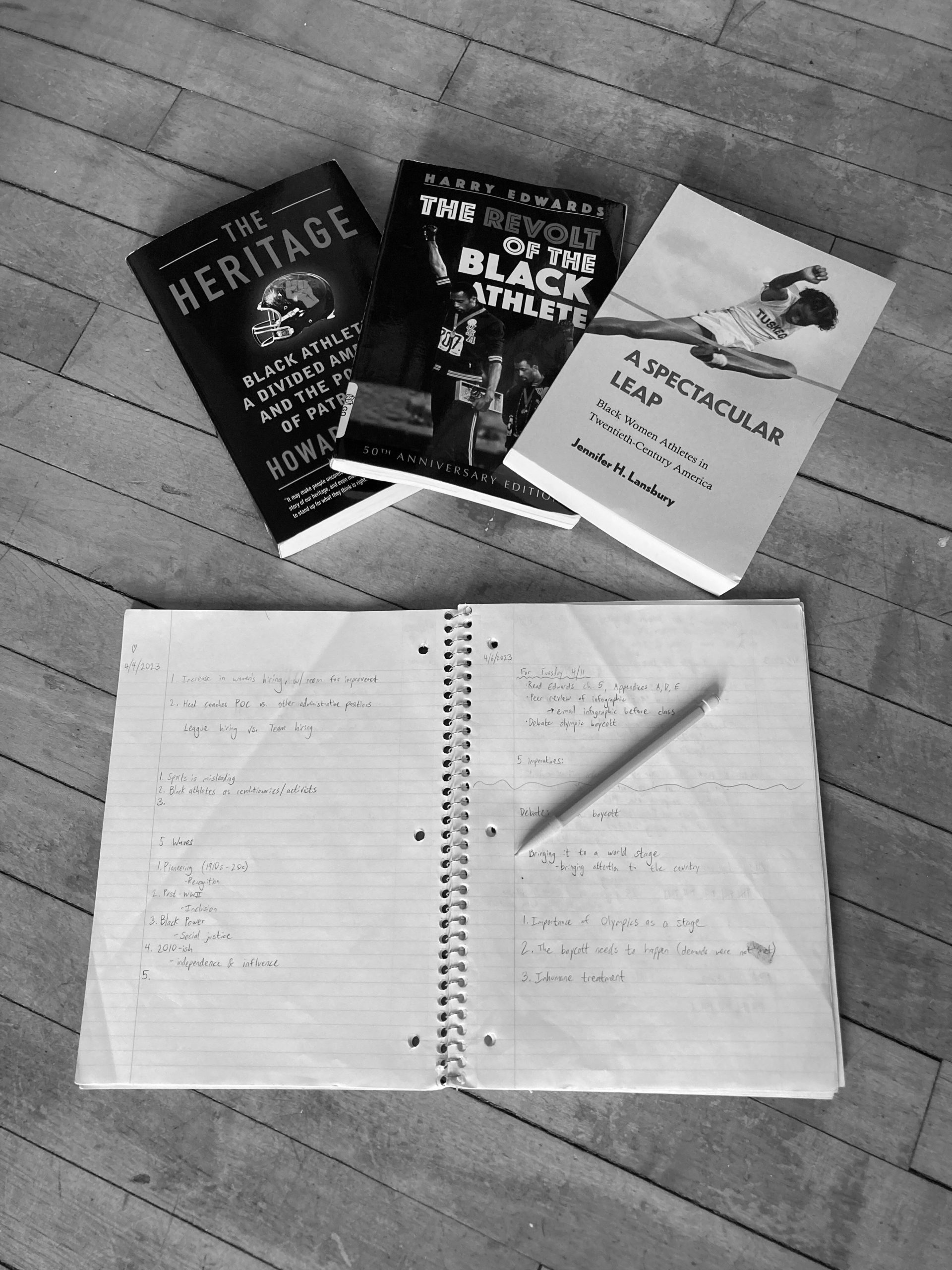One of the newest classes at Lawrence combines history and social issues with sports. Associate Professor of History Betsy Schlabach is teaching the 200-level topics class, Black Athlete’s Protest, this term.
Schlabach previously taught a variation on the class at Earlham College in Indiana before coming to Lawrence in 2021. In prior iterations, the course discussed sports and politics more generally. Now, in its current incarnation, there is a focus on specifically Black athlete activism.
In the class, students read three books encompassing the history and legacy of Black athletes’ protests in America from the Civil Rights Movement to the present, as well as supplementary readings and multimedia texts.
The choices and order of texts are carefully curated, beginning with a book by Harry Edwards, whom Schlabach calls “the guy.” Edwards was central figure in the proposed boycott of the 1968 Mexico City Olympics and architect of the Olympic Project for Human Rights, as well as a mentor to his fellow athletes and participant in the Civil Rights movement.
The primary sources in the course cover a range of athletes, from Edwards to Olympic gymnast Simone Biles, with special attention paid to including Black women’s narratives and avoiding having men dominate the conversation. Intersectionality and temporal contextualization are both key elements of the class.
Time is an especially important aspect of a history course such as this one, and Schlabach has focused on the specific timing of the subjects of her class. With football player Colin Kaepernick’s protests against police violence occurring nearly seven years ago, that very watershed moment is becoming marked as “more solidly in the past,” she said.
As Kaepernick’s specific acts of protest grow further away, the era “begins to feel more like history.”
The movement surrounding Kaepernick’s protests denoted a peak in the awareness of athletes’ potential role as activists. Far from unique, Kaepernick now belongs to a long line (or “Heritage”, as one text from the class terms it) of Black athletes protesting for various causes throughout the decades and can be compared to moments since.
The class is discussion-based and includes activities such as in-class debates, structured conversations and presentations. Schlabach notes that though the class size is small, this means that there are more opportunities for discussion wherein everyone can contribute.
“A lot of it is learning in the moment,” Schlabach said.

Schlabach shared that her favorite moments in the class are when students take charge of the conversation and even steer it in unexpected directions. Former students also send in stories “all the time,” helping to keep her (and the class) up to date on current events. With a class that brings together humanities students and athletes, diverse perspectives intermingle.
The final project for the class is something she is particularly excited for: a review of a sports film. In addition to analyzing current events and history, the assignment will see students dissecting pop culture through the lens of what they have learned about the experiences of Black athletes in America.
While Black Athlete’s Protest won’t be running next year, Schlabach is set to teach a class on pandemics.

